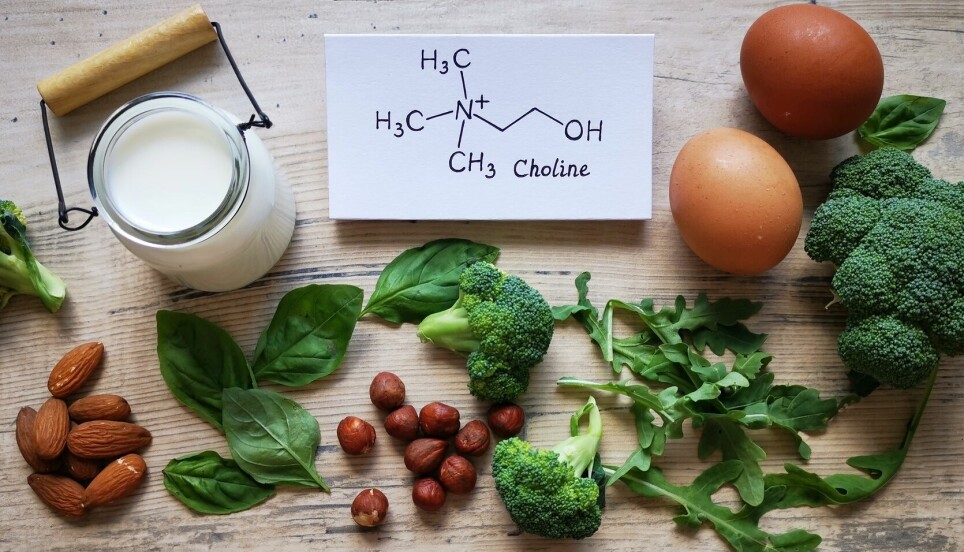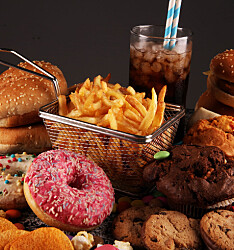
The essential nutrient that nobody has heard of
If you lack the nutrient choline, you may get liver disease. And your risk of getting Alzheimer’s or cardiovascular diseases may increase.
Researcher Anthea Van Parys defended her phd on the nutrient called choline in 2022 at the University of Bergen. During a recent lecture she revealed a secret:
“I had never heard of this nutrient before I started the work on my phd,” she said from the podium of a conference organized by Norsk tidsskrift for ernæring - Norwegian journal of nutrition.
During the defence of her phd it became clear that the opponent from the USA wasn't even quite sure how to pronounce the word in English.
And this is a nutrient that is completely essential to human beings.
Liver disease, cardiovascular disease and dementia
Choline is necessary to build cell membrane which separate the interior of the cell from the outside environment.
The nutrient is also necessary for supporting energy function in the body as well as the regulation of genes. Your nervous system needs it in order to store memories and control and regulate both muscles and your mood.
Choline is also involved in the mechanisms that transport fat away from the liver. Without this nutrient, fat will accumulate. This is why a lack of choline can cause a fatty liver and serious liver damage.
Several studies have also found a correlation between lack of choline and cardiovascular disease as well as Alzheimer’s.
A recently published study in mice showed that a diet with a deficient choline level caused damaged organs and Alzheimer-like disease.
Choline is found in different foods
The body can make some choline on its own. This is why researchers for a long time believed that it wasn’t necessary for humans to ensure they got enough choline through their diet, Van Parys said at the conference.
But the amount of choline the body is able to make is not enough. And so it is entirely necessary to eat food that contains choline.
Fortunately, many foods do.
The food that contains the most choline comes from the animal kingdom: Beef liver, beef, egg yolks and salmon are rich in choline.
But the nutrient is also found in vegetables such as soy beans and other legumes, potatoes and broccoli. Grains and nuts also contain choline.
No knowledge about intake
The question is whether people get enough choline by eating these foods.
Today we simply do not know the answer to this. Levels of choline are seldom measured in healthy people, and we also lack research to establish exactly how much we actually need.
While Norway lacks guidelines on choline, the National Institutes of Health in the USA have developed a fact sheet for health professionals. They recommend a daily intake of 550 milligrams for men and 425 milligrams for women.
But almost nobody eats that much. The previously mentioned mouse study establishes that around 90 per cent of the American population has an intake level of choline which is below the recommended daily dose.
If the results from the mice experiments are also valid in humans, then more choline in the diet might reduce the expected increase in Alzheimer’s disease, according to the researchers.
Too much is also not good
For those who now might think that choline supplements for everybody would be good for health – hold your horses.
There is very little research on how available the choline in such supplements in fact is for the body, and their effect on health.
Another thing to consider is that too much choline may not be a good thing.
Some studies have found a correlation between a high intake of choline and an increased risk of cardiovascular disease. This may be due to the fact that choline can be transformed into the metabolite TMAO, which has been connected to an increased risk of cardiovascular disease.
More research is needed
Van Parys encourages nutrition researchers to show interest in this essential nutrient.
“We need more research on this,” she said at the conference.
“We need data for recommendations, and research on what the actual intake in the population, as well as knowledge about levels of choline in different foods. The numbers from the USA and Europe do not always correspond,” she said.
Translated by: Ida Irene Bergstrøm
Read the Norwegian version of this article on forskning.no




































